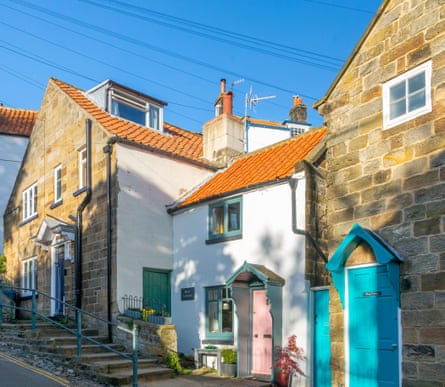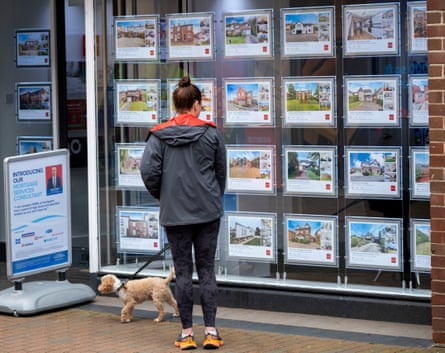When Alan Murphy* and his wife spotted their semi-detached house in Brighton, they immediately saw it as a candidate to become their “forever home”. The three-bedroom property, with a garage, a garden and space to extend, had an asking price of £575,000. But much of that, they felt, was based on its potential rather than its present condition.
“Every room in the house needed to be ripped apart and redone,” says Murphy, a public relations executive. “The garden was borderline unusable.”
The question, Murphy says, quickly became: “How do we secure this place, which fits our plans perfectly, without overstretching [our budget]?”
The answer, he explains, was to be “bold but calculated”.
The couple offered £35,000 under the asking price. The seller accepted immediately and Murphy says the quick agreement confirmed their hunch: the property had been overpriced to begin with.
By challenging the asking price, they not only secured the home they wanted but also “freed up funds for the renovations it so clearly needed”.
Across the UK, more buyers are feeling confident enough to take the same measured risk. According to the property website Zoopla, the average home now sells for about £16,000 below its listing price, while house price growth has slowed to just 1.3% year on year.

So if, like the Murphys, you have found a home that meets your criteria but see reasons to question the price, there is definitely a case for negotiation. (Which is not the same as gazundering – the much-frowned-upon practice where a homebuyer demands a reduction on the agreed purchase price at the 11th hour.)
Loss aversion
Zoopla’s figures suggest many homeowners are still pricing properties with one foot stuck in the past. For many, their judgment is coloured by “loss aversion”, says Christian Hilber, a professor of economic geography at the London School of Economics. At a time when house prices were booming – for instance, during the mid-2000s – sellers routinely received more for their property than they originally paid for it. However, today’s economic conditions are tighter, and past optimism no longer dictates value.
Some sellers genuinely believe their home warrants a high price because of all the renovations and improvements they have ploughed into it over the years.
“Your home is your pride and joy, and if you’ve spent years investing in it, you’d hope it’s worth as much as possible,” says the Kent-based mortgage adviser Aggi Christou.
However, the cost of living crisis and rising mortgage rates have tightened people’s budgets. This makes buyers, understandably, more discerning about what they should get for their hard-earned money.
Estate agents also shape how sellers price their properties. Robin Edwards, a partner at the London-based property consultancy Curetons, says some agents may start with a slightly higher valuation “to test the market or reflect a seller’s ambitions, then adjust expectations if interest doesn’t materialise … Often it’s simply optimism meeting reality.”
He says that when he is assessing a property: “I start with evidence: recent comparable sales, local demand and how long similar homes have taken to sell… Then I layer in the property’s condition and any unique positives or negatives that might affect the price. The real value isn’t what an algorithm predicts – it’s what an informed buyer is realistically willing to pay.”

Edwards says that, for buyers, the same logic applies. “Most sellers can tell the difference between a fair negotiation and someone trying to get away with something,” he says. A well-pitched offer shows respect for the property and the seller’s position, while a blatant lowball offer can make them defensive and less willing to engage.
The key, Edwards says, is to be strategic but not speculative. “Back your offer up with facts such as survey findings or visible work that needs doing, and communicate respectfully,” he says.
“Realism means understanding that value isn’t what the market once was – it’s what the numbers support right now.”
The human factor
Recent homebuyer Rowena Bower* agrees that emotions are “secondary” to hard metrics but she believes there is still a human factor that buyers and sellers cannot resist entirely.
Bower, who works in human resources for a technology company, and her husband, an accountant, successfully bought a four-bedroom property in south-east London for £535,000 – £15,000 less than the original £550,000 listing price. They did so despite a competing higher offer.
She attributes at least part of their success to a rapport with the sellers. “The owners were empty-nesters looking to downsize quickly,” she says. “We tried to make the process personal – to show we understood the home’s history, listened to their story, shared our own, and expressed that we wanted the chance to create the same memories there ourselves.”

The couple bypassed the agent by sending a short letter directly to the sellers. “We already had the address,” she says with a laugh. They outlined their position, requested a chat and then met.
“It let both sides put names and personalities to the numbers instead of just exchanging offers over email,” she says. “People forget that behind every listing there’s a person. If you can show you’re serious, genuine and respectful, your offer lands differently.”
The below-asking-price offer was justified, Bower says. “We had carried out an independent survey and done our research, so we knew the property’s condition and comparable sales. At the same time, we could communicate honestly with the sellers about how every margin counts when raising a family. Building that human relationship helped them see our perspective.”
However, Bower says buyers must still be “fully prepared to hear the word ‘no’”, and to accept it. “It’s fine to test the waters … But you need to be careful not to overstep. An offer too far from the asking price can undo the relationship you’ve worked to build.”
Don’t ask, don’t get
The current UK housing market is more elastic than many realise. Asking prices ask, rather than dictate, a value.
As long as you have done your homework, why not make your case? The worst outcome is a polite refusal. Even a relatively small percentage reduction can save thousands and, as Christou highlights, “make a tangible difference – whether that means [more money for] decorating or simply affording the mortgage, deposit or stamp duty more comfortably.”
Now is the time to act. Hilber says the spate of sellers accepting lower offers is likely to be “a temporary response to the current environment … When confidence returns and the economy strengthens, the balance of power in the housing market is likely to flip again.”
With supply still constrained, even modest increases in demand could push prices higher.
For the time being, it is a buyer’s market. As the adage goes: if you don’t ask, you don’t get.
*Names have been changed

 2 months ago
55
2 months ago
55

















































